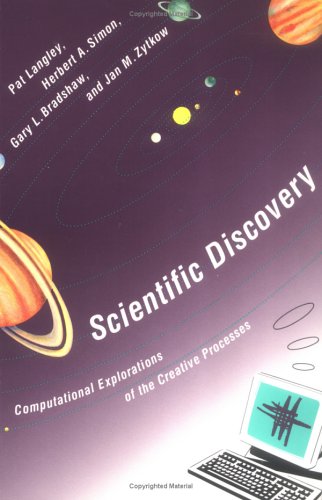Scientific discovery is often regarded as romantic and creative-and hence unanalyzable-whereas the everyday process of verifying discoveries is sober and more suited to analysis. Yet this fascinating exploration of how scientific work proceeds argues that however sudden the moment of discovery may seem, the discovery process can be described and modeled.
Using the methods and concepts of contemporary information-processing psychology (or cognitive science) the authors develop a series of artificial-intelligence programs that can simulate the human thought processes used to discover scientific laws. The programs-BACON, DALTON, GLAUBER, and STAHL-are all largely data-driven, that is, when presented with series of chemical or physical measurements they search for uniformities and linking elements, generating and checking hypotheses and creating new concepts as they go along.
Scientific Discovery examines the nature of scientific research and reviews the arguments for and against a normative theory of discovery; describes the evolution of the BACON programs, which discover quantitative empirical laws and invent new concepts; presents programs that discover laws in qualitative and quantitative data; and ties the results together, suggesting how a combined and extended program might find research problems, invent new instruments, and invent appropriate problem representations. Numerous prominent historical examples of discoveries from physics and chemistry are used as tests for the programs and anchor the discussion concretely in the history of science.
- ISBN10 0262620529
- ISBN13 9780262620529
- Publish Date 24 February 1987
- Publish Status Out of Stock
- Out of Print 8 November 2017
- Publish Country US
- Publisher MIT Press Ltd
- Imprint MIT Press
- Format Paperback (US Trade)
- Pages 367
- Language English
